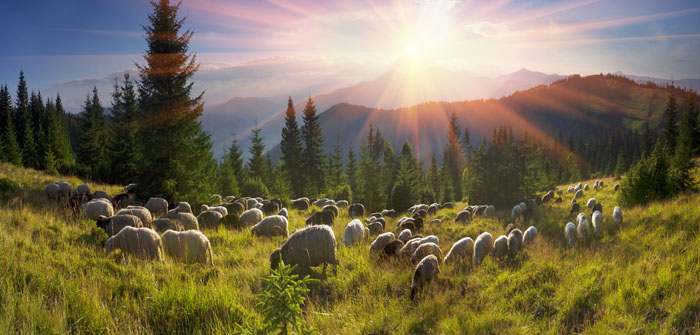Sheep farmers are being advised to treat stock for parasites based on risk, rather than the time of year in order to prevent costly production losses.
Industry figures suggest parasitic gastroenteritis is the main production limiting disease of sheep in the UK, with an annual cost to the UK industry of about £84 million. This is because stomach worm infections can decrease growth rates in lambs by as much as 47 per cent, and wool production by up to 21 per cent.
With no two years the same when it comes to parasite activity, farmers need to be aware of what is happening on their farm and take appropriate action based on the risk, says vet Dr Dave Armstrong from Zoetis.
He said: “Every year we see peaks at different times of the year. For example, in 2017, we saw Nematodirus strike some farms later in the summer because we had a period of dry weather followed by sudden rain and an increase in temperature. Farms were also challenged by fluke earlier in the season because of the weather.
“This is why it’s important farmers know what is happening in their area, use growth rates and faecal egg tests to build a picture on their own farm and monitor stock to check they are maintaining condition.”
To help sheep farmers, SQPs and vets assess the parasite risk in their area Zoetis is running the successful Parasite Watch scheme for the third consecutive year.
Eighteen farms involved in the scheme will have faecal samples taken every two weeks to detect major stomach worms and Nematodirus.
Fluke will be tested regularly during risk periods using copro-antigen testing. This will pick up immature fluke from greater than six weeks of age, giving farmers, vets and SQPs advanced warning of potential issues. Flies will also be monitored on the farm using fly traps.
Parasite information from each of the farms will be uploaded to www.parasitewatch.co.uk within hours of the test result coming back, which will give a real-time picture as to what is happening on the ground.
Dr Armstrong stressed the importance of not treating according to the calendar and encourages farmers, vets and SQPs to use the free Parasite Watch service.
“You can’t just judge by the calendar or what happened last year, you’ve got to look at stock, weigh stock and know what is going on,” he said.


